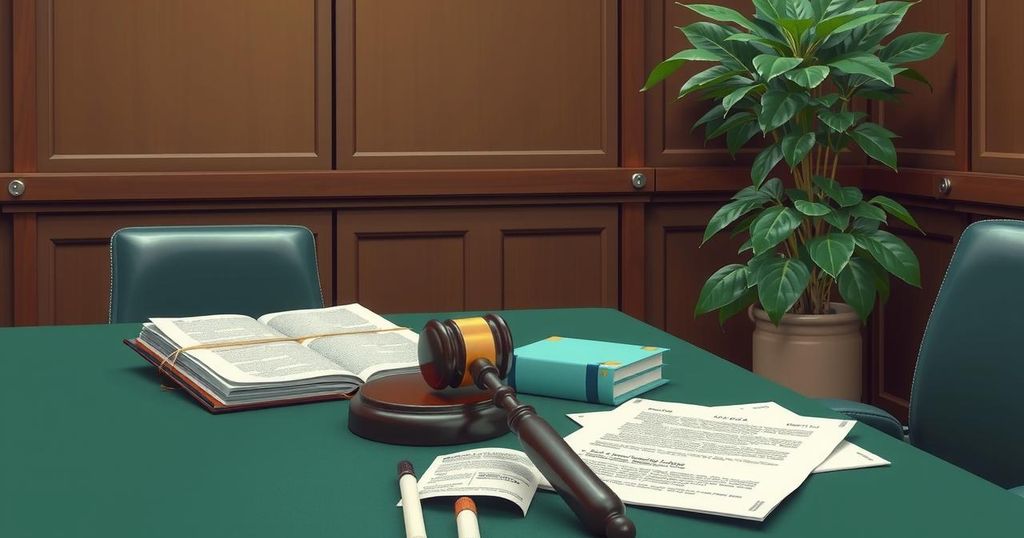Peruvian Farmer Challenges RWE in Landmark Climate Change Lawsuit

Saul Luciano Lliuya, a Peruvian farmer, is suing RWE in Germany, claiming its emissions contribute to climate change and threaten his community with glacial melt and flooding. The case, which may set a legal precedent, emphasizes the responsibility of major polluters in the climate crisis. Experts and supporters are hopeful for the outcome as it progresses in court.
A significant climate lawsuit is progressing in Germany, where Peruvian farmer Saul Luciano Lliuya is in legal conflict with the German energy company RWE. Lliuya asserts that RWE’s historical greenhouse gas emissions contribute to global warming, leading to hazardous glacial melt near his hometown, Huaraz, Peru. Consequently, the risks posed by Lake Palcacocha swelling endanger local communities, including Lliuya’s home.
As the case unfolds at the state court in Hamm, it is viewed as potentially precedent-setting for holding large polluters accountable in climate change disputes. Despite RWE’s denial of legal responsibility, asserting the issue is global and multifactorial, Lliuya’s claims directly link the company’s emissions to threats faced in his region.
Outside the courthouse, Lliuya emphasized the importance of glaciers, stating their role in sustaining life for local inhabitants. He expressed a mixture of hope and anticipation, reflecting on the ten-year wait for this trial. “I’m very excited; I hope that everything goes well,” he conveyed to the attending audience.
Lliuya’s legal representative, Roda Verheyen, expressed cautious optimism about the case, underlining the urgency of addressing climate impacts as glaciers recede. Verheyen highlighted RWE’s status as a leading carbon dioxide emitter in Europe and noted that this case could pave the way for similar legal actions against other polluters.
RWE contends that the case is inadmissible, asserting that it endangers the ability to address climate phenomena effectively through state and international legislation rather than through the courts. The court will review expert analyses regarding risks faced by Lliuya’s property, but the timing of their judgment remains uncertain.
This case represents a crucial intersection of climate accountability and legal redress, as it may have far-reaching implications beyond the immediate dispute.
In summary, the lawsuit led by Peruvian farmer Saul Luciano Lliuya against RWE highlights the urgent need to confront climate change at the corporate level. It underscores the potential for legal actions to hold companies responsible for their contributions to global warming. As the judicial process unfolds, it could either reinforce mechanisms for climate accountability or pose challenges in terms of legal frameworks governing climate policies.
Original Source: apnews.com






